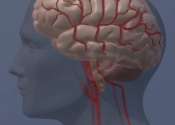Researchers examine the neuroscience of mental fatigue
We all perhaps know the feeling of mental exhaustion, but what does it mean physiologically to have mental fatigue? A new study carried out using brain scans could help scientists uncover the neurobiological mechanisms underlying ...
Dec 10, 2012
0
0






